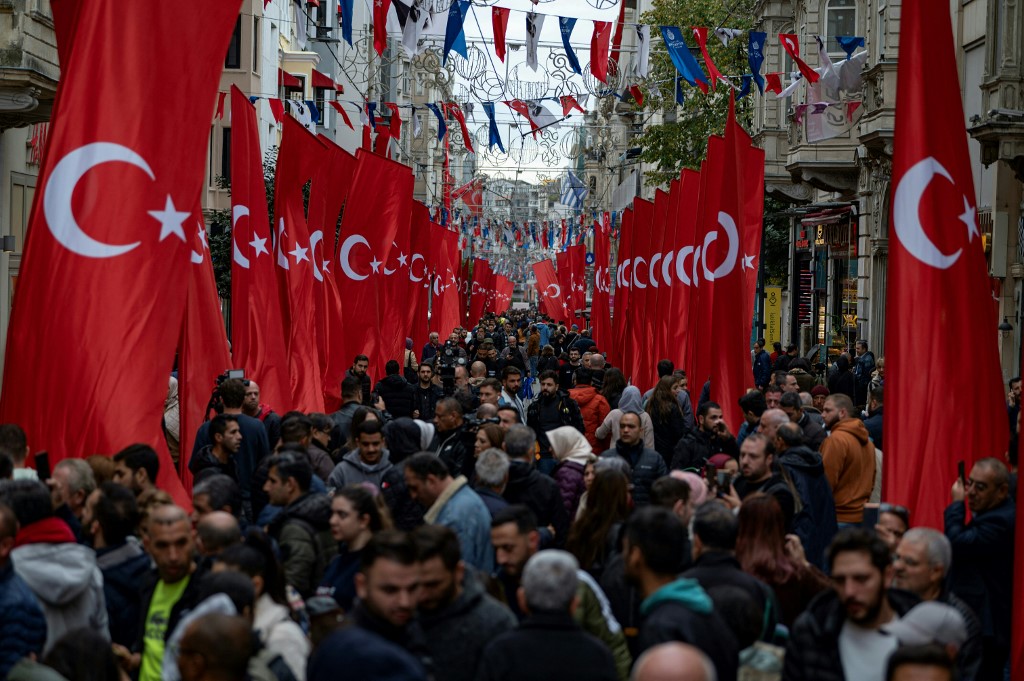Turkey has taken 14 steps back and was ranked 115th among 180 countries with a score of 34 out of 100, the lowest in the past 10 years, in the 2023 Corruption Perceptions Index (CPI) released by Transparency International (TI), Deutsche Welle Turkish service reported on Tuesday.
The CPI ranks countries and territories based on how corrupt their public sector is perceived to be. A country or territory’s score indicates the perceived level of public sector corruption on a scale of 0 (highly corrupt) to 100 (very clean).
According to the index Turkey, which was ranked 101st in 2022 with a score of 36, has lost two points and was ranked the same as Indonesia, Sri Lanka, Malawi, Philippines and Ecuador in 2023.
The country has dropped 62 places in the index since 2013, when it scored 50 points and was ranked 53rd.
In the Eastern Europe and Central Asia region, which includes Turkey, the average score was as high as 35.
This region is characterized by a dysfunctional rule of law, increasing authoritarianism and systemic corruption. The CPI notes that five countries in the region have managed to improve their scores over the last 10 years and that three countries have deteriorated, while the rest remaining the same. The three countries that have deteriorated are Bosnia and Herzegovina, which has dropped to 35 points; Turkey, which has dropped to 34 points; and Turkmenistan, which has dropped to 18 points.
“Turkey’s (34) steep decline of 8 points since 2015 is due to an overly dominant executive branch and few democratic checks and balances,” a regional overview about the 2023 CPI on the TI website read.
Turkish President Recep Tayyip Erdoğan is accused of establishing one-man rule in the country, particularly after a coup attempt in 2016, following which he launched a massive crackdown on non-loyalist citizens and the country’s subsequent transition to the presidential system of governance, which granted him vast powers.
Many say there is no longer a separation of powers in the country and that members of the judiciary are under the absolute control of the government and cannot make judgments based on law.
“Insufficient laws against corruption, reluctance to enforce these laws and lack of judicial independence stand in the way of progress. The tragic consequences of the February 2023 earthquake showed how the price of corruption is sometimes paid in human lives,” according to the TI website.
President Erdoğan’s government came under strong pressure on social media for what his critics saw as a slow response to Turkey’s biggest earthquake in nearly a century on February 6.
The government was mainly accused of failing to mobilize enough people for relief efforts and a lack of coordination among the teams, which resulted in civilians in some regions trying to pull their loved ones from under the rubble themselves and finding them frozen to death although they sustained no critical injuries in the collapse.
The government was also criticized for failing to provide safe shelter to the earthquake survivors and meeting their basic needs although there are ongoing relief efforts in Turkey and overseas for the earthquake survivors.
The instant collapse of so many buildings in one of the world’s most earthquake-prone regions points to the greed of unscrupulous property developers and corruption among bureaucrats who signed off on unsafe building projects, experts say.
Transparency International’s study can be considered proof that Turkey’s backsliding started in late 2013, when Turkey was shaken by two corruption investigations implicating then-prime minister and current president Erdoğan’s inner circle.
Erdoğan’s Justice and Development Party (AKP) government subsequently suppressed the corruption scandal by managing to control the judiciary by creating special criminal courts headed by a single judge, thanks to the AKP’s parliamentary majority.
These judges then jailed all the police and prosecutors who had conducted the 2013 corruption investigations, while Erdoğan and his family members who were implicated have never appeared in court.
The erosion in the rule of law in Turkey worsened after a failed coup in July 2016, when more than 4,000 judges and prosecutors were removed under the pretext of an anti-coup fight.
The AKP government is accused of replacing the purged judicial members with young and inexperienced judges and prosecutors who have close links to the AKP.
In a development that confirmed the erosion of the Turkish judiciary, Turkey was ranked 117th among 142 countries in the rule of law index published by the World Justice Project (WJP) in late October, dropping one place in comparison to last year.

